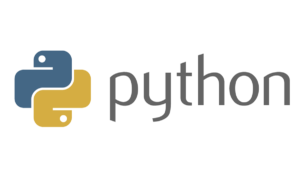Метод заполнения словаря Python popitem() удаляет последнюю вставленную пару ключ-значение из словаря и возвращает ее в виде кортежа.
Синтаксис : dict.popitem()
Параметры : None (Нет)
ВОЗВРАТ : Кортеж, содержащий произвольную пару ключ-значение из словаря. Эта пара удаляется из словаря.Генерация случайных чисел имеет множество применений в повседневной жизни. В списке для одного и того же поддерживаются различные функции. Целая библиотека посвящена Python для обработки случайных чисел. Но иногда нам нужно выполнить аналогичную задачу со словарем.
Примечание: метод popitem() возвращает ошибку ключа, если словарь пуст.
Пример метода popitem() словаря Python
Пример № 1: Демонстрация использования функции popitem()
Здесь мы собираемся использовать python диктует, чтобы наконец-то появиться элемент.
# Python 3 code to demonstrate
# working of popitem()
# initializing dictionary
test_dict = {"Nikhil": 7, "Akshat": 1, "Akash": 2}
# Printing initial dict
print("The dictionary before deletion : " + str(test_dict))
# using popitem() to return + remove arbitrary
# pair
res = test_dict.popitem()
# Printing the pair returned
print('The arbitrary pair returned is : ' + str(res))
# Printing dict after deletion
print("The dictionary after removal : " + str(test_dict))
Выход:
The dictionary before deletion : {'Nikhil': 7, 'Akshat': 1, 'Akash': 2}
The arbitrary pair returned is : ('Akash', 2)
The dictionary after removal : {'Nikhil': 7, 'Akshat': 1}Практическое применение: Эта конкретная функция может быть использована для формулировки случайного имени для игры или определения случайного списка рангов без использования какой-либо случайной функции.
Пример № 2: Демонстрация применения функции popitem()
# Python 3 code to demonstrate
# application of popitem()
# initializing dictionary
test_dict = {"Nikhil": 7, "Akshat": 1, "Akash": 2}
# Printing initial dict
print("The dictionary before deletion : " + str(test_dict))
n = len(test_dict)
# using popitem to assign ranks
for i in range(0, n):
print("Rank " + str(i + 1) + " " + str(test_dict.popitem()))
# Printing end dict
print("The dictionary after deletion : " + str(test_dict))
Выход:
The dictionary before deletion : {'Nikhil': 7, 'Akshat': 1, 'Akash': 2}
Rank 1 ('Akash', 2)
Rank 2 ('Akshat', 1)
Rank 3 ('Nikhil', 7)
The dictionary after deletion : {}Пример № 3: Случайное заполнение словаря Python
# Python3 code to demonstrate working of
# Get random dictionary pair in dictionary
# Using popitem()
# Initialize dictionary
test_dict = {'Gfg' : 1, 'is' : 2, 'best' : 3}
# printing original dictionary
print("The original dictionary is : " + str(test_dict))
# Get random dictionary pair in dictionary
# Using popitem()
res = test_dict.popitem()
# printing result
print("The random pair is : " + str(res))
Выход:
The original dictionary is : {'Gfg': 1, 'best': 3, 'is': 2}
The random pair is : ('is', 2)
